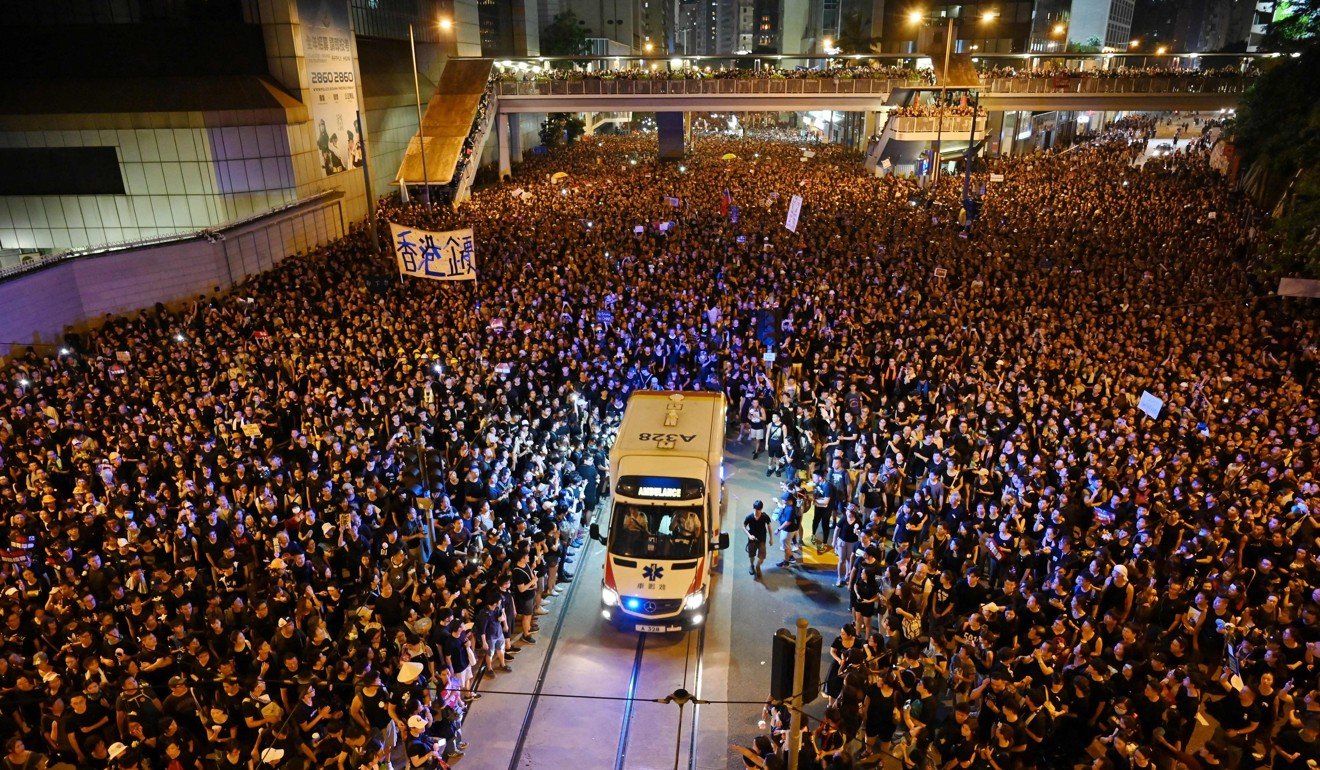
How the Hong Kong identity is being warped by social media, as protests rage
- Online pressure to please others and win plaudits is reshaping Hongkongers’ sense of who they are
Whenever outsiders mention Hong Kong as a city of China, many Hongkongers tend to become defensive, partly because of fears of losing their Hong Kong identity.
The truth is Hong Kong will never lose its identity. Moreover, the city does not have just one identity, it has multiple identities so as to adapt to changing circumstances and adjust to challenges. That is why Hong Kong people are true survivors.
There are countless qualities that make Hongkongers unique.

Some of the admirable characteristics include their respect for the rule of law; their courage to speak up against injustice and their loyalty to families and loved ones, just to name a few.
Other qualities are their resilience, adaptability, efficiency, street-smartness, open-mindedness, and civilised attitudes, all of which are contributory factors to their distinctive “Hongkongness”.
The recent political upheaval in the city caused by the now-suspended controversial extradition bill has put the courage of Hongkongers on full display to the world.
Some of the people I have talked to said although they had been saddened by the recent violence erupted during protests against the extradition bill, they have nonetheless remained proud of being Hongkongers.
They explained that the core character of being a Hongkonger was to have the durability and resilience to withstand and overcome all kinds of challenges and difficulties.
They said as Hongkongers, they found it their obligation as well as their natural desire to love this city unconditionally, and that is what drives them to do their utmost to safeguard their families, their homes, and their future.
One thing that is a markedly Hong Kong characteristic is that despite their individualistic attitude, which is sometimes viewed as being self-centred, Hong Kong people can come together as an unstoppable force. When they act in unison, they can achieve almost anything.

But in some ways, the technology era is altering Hong Kong people’s self-identity by shifting from being internally to externally driven. And social media is certainly having an impact on the formation of their identities.
Previously, factors that influenced the formation of the Hong Kong identity were families, peers, communities, and maybe even the mass media.
All have helped shape their views and how they should perceive themselves. But now this Hong Kong identity can be – and certainly has been – deeply affected by outside factors mostly stirred up by social media.
Today the Hong Kong identity is not as straightforward as before.
First, social media encourages its users to manufacture facades of who it wants us to be. It does this by tapping into our desire to feel good about ourselves, and a need to feel accepted. This social media culture tells us what we should believe about ourselves.
The problem is that this type of self-identity does not necessarily serve what is best for us.
This is not our self-identity as it does not come from within ourselves, but rather an identity that is projected on to us. It is rather dangerous because if the mainstream thinking out there gives us a distorted view of what we should do in order to be ourselves – it could dictate us to do things we would not normally do in the first place.
Social media has caused us to shift away from being true to how we feel in ourselves. It forces us subliminally to please others in order to get accepted. In the end we have become obsessed with reaching the goal of acceptance, popularity and status.
The Hong Kong identity is one of a kind; Hong Kong people need to stop undermining their true self-identity and appreciate they are what they are. Hong Kong people are unique, headstrong, and courageous in times of trouble and hardship.
Hongkongers have endured a prolonged identity crisis to come to where they are today, and this evolution is still ongoing and will become even more rapid and dramatic when confronted with challenges like what have so far happened in this extradition bill saga.
However, Hongkongers are fundamentally peaceful, law-abiding, and empathetic.

These distinctive characteristics were clearly demonstrated during a moving scene on June 16 when thousands of protesters were seen retreating like the parting of the Red Sea in order to clear a path for an ambulance to pass through.
We have witnessed numerous violent clashes between opposing groups in the extradition bill debacle. But no matter how difficult and how messy the situation has become, the bottom line is that the hearts and minds of Hongkongers cannot be bought, or beaten; they have to be won.
Luisa Tam is a correspondent at the Post

